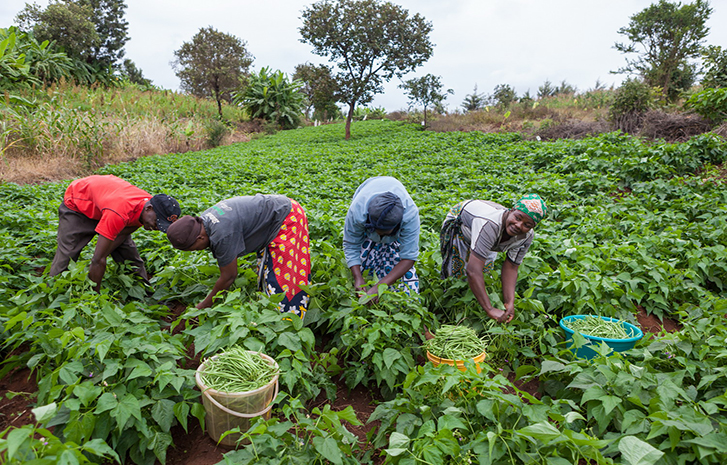Let us discuss the importance of agriculture. The current problems in our world are almost too numerous to list: food security is under threat, rural and urban poverty and inequality are at an all-time high, and the environment is rapidly buckling under the weight of the human footprint.
Education has a significant role to play in resolving these ongoing issues by bringing together the key players to effect much needed positive change in the world.
Our schools appear to be under so much pressure to achieve literacy and numeracy outcomes that children are not being taught the fundamentals, particularly when it comes to farming activities.
Children all over the world must understand that agriculture is more than just farming; it is a way of life.
Read Also: Top 50 Agriculture Business Ideas for Aspiring Entrepreneurs
Agriculture provides everything we eat, use, and wear on a daily basis, but very few children (and adults) understand our fundamental reliance on this single industry.
Many children do not understand how their food gets from the farm to their plates, or how much work is involved in getting that food, because only a small portion of our global population lives on farms or has any connection to rural areas.
We need a well-rounded farming education so that we can understand where our food and fiber come from as well as the importance of sustainable and secure agriculture for a growing global population.
According to research, by 2050, there will be 9 billion people on the planet who will need to be fed and clothed by agriculture. Does this not tell us that we need to teach our children about this industry?
Read Also: Interconnected benefits of urban agriculture
The global demand for agricultural university graduates outnumbers the supply because many young people prefer to study subjects other than agricultural-related courses and subjects.

Given the current economic climate, employment opportunities for young people with expertise in the food, agricultural, natural resources, and related science and engineering sectors are expected to be plentiful into the future.
In the next five years, four major factors will shape the market for university graduates: macroeconomic conditions and retirements; consumer preferences for nutritious and safe foods; food, energy, and environmental public policy choices; and global market shifts in population, income, food, and energy.
As a result, we must incorporate agriculture into our school learning curricula, beginning in kindergarten, and ensure that students continue to pursue postgraduate research in agriculture.
By ignoring the ongoing research and development of an education sector that is critical to human survival all over the world, we may be jeopardizing our global food and economic security.
Read Also: Recommended Ways for Disposing Textile Wastes
Agriculture, without a doubt, suffers from image issues as it is frequently perceived as a low-skilled, non-academic profession, despite the fact that agriculture employs hundreds of thousands of people and contributes significantly to the global economy.
Indeed, agripreneurs are at the helm of some of the most innovative and exciting inventions and ideas that our world has ever seen!
This is all very academic, but to keep it simple, agriculture is enjoyable for children.
They have the opportunity to learn about animals and plants, as well as computers, machinery, and technology.
When you combine agricultural education with a desire to live sustainably, the sky is the limit for children.
Agriculture provides opportunities in cities, the countryside, laboratories, offices, paddocks, or while flying drones and operating high-tech machinery and equipment.
It is a diverse, difficult, innovative, and exciting field.
Read Also: How to Get Rid of Crickets in Houses
Agricultural education goes beyond the development of knowledge and skills so that students can gain an understanding of;
1) The value of agriculture in a global society, as demonstrated by the application of scientific and business principles, as well as problem-solving strategies; and
2) The agricultural industry’s interdependence and relationships with other significant businesses are intertwined with the entire economic and social structure of the community, state, nation, and world.
This program focuses on food systems, environmental issues, and life skills development.
Agricultural education encompasses, but is not limited to, horticulture, forestry, conservation, natural resources, agricultural products and processing, food and fiber production, aquaculture and other agricultural products, mechanics, sales and service, economics, marketing, and leadership development.
Read Also: Comprehensive List of Interesting Business Ideas for You
